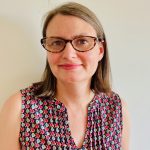New York City’s popular 3-K-for-All program was supposed to offer free preschool to all of the city’s 3-year-olds. But last fall, Mayor Eric Adams’s administration tabled plans to continue expanding the program, suggesting that when it came to early education, helping low-income families would be the city’s priority moving forward. “Where we do have limited resources, we’re going to focus those on the communities and the families that tend to get locked out of opportunities,” the first deputy schools chancellor told the New York Times.
The tension between 3K-for-All’s ambitious goal and its political and economic realities underscores a central question facing every fledgling public preschool program: Should the program be “universal”—available to all—or “targeted” to the families who need it most?
A study published last month in the peer-reviewed empirical microeconomics-focused Journal of Human Resources has a ready answer: Preschool programs reserved for poor children aren’t nearly as effective as universal ones.
Elizabeth Cascio, the study’s author and an economist at Dartmouth College, was once among the many who suspected that targeted preschool programs offered the most learning bang for the buck. In 2013, Cascio and the economist Diane Schanzenbach co-published a study of Oklahoma and Georgia’s preschool programs which found that the universal programs had a significant, positive impact for disadvantaged children. It did not have an impact for children from higher-income families, who would have otherwise likely been enrolled in private preschool paid for by their parents. For those families, the free program acted mostly as a cash transfer, said Cascio. “In the conclusion, we were really tempted to say, why don’t we just do this in a targeted way, because you can get the same results with lower costs?” she remembered.
But there was one big, potential caveat to that recommendation: Targeted preschool programs made the most financial sense unless—for some reason—the wildly positive results for children from lower-income families depended on the programs being open to families of all economic strata.
To test whether that was the case, Cascio used survey data from the national Early Childhood Longitudinal Study to compare test scores of thousands of 4-year-olds in more than 30 states, some which offered targeted state preschool programs, others universal, yet others none. Across the board, poor children in states where preschool programs also welcomed children from other economic backgrounds showed far better reading test score gains when they became eligible for and enrolled in public preschool than children in states with programs targeted to disadvantaged children. This held true even when Cascio adjusted for factors such as class size, spending per pupil, teacher training and education in the state programs, as well as children’s alternate care arrangements. Effects on math scores were also higher for disadvantaged children in states with universal programs, though not high enough to be deemed significant.
With such pronounced, positive effects in universal programs, Cascio determined that the universal programs were also more cost effective. Universal programs “cost more overall” because they serve more children, said Cascio, but their return “is more per dollar spent.”
The key takeaway? To reap the greatest positive benefits for children from low-income families, explained Cascio in a phone interview, “you have to pay for the kids who aren’t disadvantaged.”
The study was not able to determine why, exactly, the universal programs worked so much better, but Cascio and other researchers have offered possible explanations. Universal preschool programs may be operated or designed in ways that focus more on kindergarten readiness, leading to higher test scores, said Cascio in a phone interview.
Alternately, higher income families generally have not only more social capital, but sometimes a heightened sense of entitlement, which could prompt them to hold programs more accountable, leading to higher quality. “Maybe higher income parents feel more like their voices will be heard and are sort of more empowered to make their opinions known and have the privilege to do it,” said Cascio.
Or it may be that mixing children from different economic backgrounds–even if only slightly different–is key. Economic integration has been found to be beneficial for older children’s learning, but there is scant research on economic integration among young children, largely due to a lack of opportunity to study it. Because most early education is private, programs typically segregate by what parents can afford. But research has been able to establish that higher skill sets in preschoolers strongly correlate with higher income families. And in preschool, kids learn as much, if not more, from playing and interacting with each other as they do from teachers—what researchers call “the peer effect.” It goes to reason, then, that in economically mixed classrooms, the skills of more economically privileged children can influence other kids, potentially leading to the higher test scores. In other words, paying for those kids’ presence might be what makes universal programs so effective.
Whatever the reason, the finding that universal programs are both more impactful and cost efficient than targeted programs flies in the face of decades of policy assumptions and decisions in the U.S. Historically, most government funding for early education has targeted economically disadvantaged families, with the idea being that affluent families already pay for preschool. As the historian Elizabeth Rose details in her book The Promise of Preschool, ever since President Richard Nixon vetoed a national plan for universal child care in 1971, Americans grew used to the idea that preschool should be paid for privately. This led to “stronger political support for using public dollars for low-income children who clearly ‘need’ it than for building a bigger and more expensive system,” wrote Rose.
This, in turn, helped to cement economic segregation during the early years, which some researchers believe has only fueled the achievement gap between children from low- and higher income families—a gap which arises long before children step foot in kindergarten. “It is exciting to think that a [universal preschool program] could address that,” said Cascio.
Universal programs also have other benefits–in many places, they’ve increased mothers’ participation in the workforce and generated significant tax revenue. But in the absence of federal funding, state and city leaders continue to face tough choices as they struggle to foot the bill for truly universal programs.
Cascio’s research should tip the scales, the economist Diane Schanzenbach said back in 2017, when Cascio revealed the study’s early findings in a working paper. Given the research, Schanzenbach told the news site Quartz, “I think this means we have to support universal pre-k programs, and the large price tags that go along with them.”

Kendra Hurley
Kendra Hurley is a journalist and researcher focused on cities, families, policy and economic issues. Her journalism has appeared in The Atlantic, Bloomberg's CityLab, Slate and other publications. She was previously a policy researcher and editor at The New School, and also spent several years as a mentor-editor for a magazine written by and for teens in foster care.



